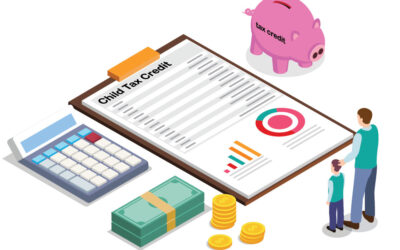The Basics of Bonus Taxation
Bonuses, those delightful extra payments that often come as a reward for hard work or achieving specific milestones, have a unique place in the tax world. At its core, a bonus is considered supplemental income by the Internal Revenue Service (IRS). This classification means that it’s treated differently than your regular salary or hourly wage.
Now, before anyone jumps to conclusions, it’s essential to note that the IRS doesn’t view bonuses as a windfall or lottery win. Instead, they see it as compensation that’s above and beyond the standard pay. As such, it’s subject to specific tax rules that might differ from the regular income tax rates you’re accustomed to.
To give readers a clearer picture, let’s break down the different types of bonuses and their tax implications:
Performance Bonuses – These are the rewards you get for meeting or exceeding certain work-related goals. Whether it’s hitting a sales target or completing a project ahead of schedule, performance bonuses are a common way companies incentivize their employees.
Signing Bonuses – Offered to new employees as an incentive to join a company, signing bonuses can be a lump sum or spread out over a specific period.
Retention Bonuses – In industries where competition for top talent is fierce, companies might offer retention bonuses to keep their star employees from jumping ship.
Referral Bonuses – Some companies reward employees for referring new hires. If the referred individual gets hired and stays for a specified period, the referring employee receives a bonus.
Holiday Bonuses – A token of appreciation, holiday bonuses are often given at the end of the year and can vary in amount.
Each of these bonuses, while serving different purposes, falls under the umbrella of supplemental income. As such, they’re subject to specific tax withholding rules set by the IRS. In the upcoming sections, we’ll delve deeper into how these rules apply and what you can expect when bonus time rolls around.
The Two Methods of Taxing Bonuses
The IRS uses two primary methods to tax bonuses: the flat rate method and the aggregate method.
The flat rate method is simpler. The IRS specifies a fixed percentage, currently at 22%, to be withheld from the bonus amount. So, if an employee receives a bonus of $5,000, a total of $1,100 (22% of $5,000) would be withheld for federal income tax. This method is straightforward and is often preferred by employers because of its simplicity.
The aggregate method is a bit more complex. Here, the bonus is combined with the employee’s most recent regular paycheck. The total is then taxed based on the IRS withholding tables for that sum. After determining the tax for the total amount, the tax already withheld from the regular paycheck is subtracted, and the remaining tax is withheld from the bonus. This method can sometimes result in a higher tax withholding, especially if the combined amount pushes the employee into a higher tax bracket.
Employees can choose which method they prefer, but employers are not required to offer both options. If an employee does not specify a preference, the employer will use the flat rate method.
It is important to note that these are just the two primary methods used by the IRS to tax bonuses. There are other methods that may be used in certain circumstances. For example, if an employee receives a bonus that is considered to be “supplemental income,” it may be taxed at a higher rate.
Employees should consult with a tax professional to discuss their specific situation and how their bonus will be taxed.
State-by-State Variation
When it comes to bonuses, the federal government isn’t the only one who wants a piece of the pie. Each state has its own set of rules and regulations on how bonuses are taxed. The IRS provides a federal guideline, but the state you live in can have a big impact on how much of your bonus you actually take home.
For example, states like Texas, Florida, and Nevada don’t have state income tax. This means that residents of these states won’t see any state deductions from their bonuses, which means they’ll have a bit more to celebrate. On the other hand, states like California and New York have higher state income tax rates, which can take a more substantial bite out of that bonus check.
And it’s not just about the rate. The method of calculation can also vary. Some states might use the aggregate method, which is similar to the federal approach, while others might opt for a flat rate. This can lead to situations where two individuals, receiving the same bonus amount but residing in different states, end up with different net amounts.
So, if you’re expecting a bonus, it’s important to be aware of the tax implications in your state. This way, you can make sure you’re not surprised by a big tax bill when you file your return next year.
Factors Influencing Your Bonus Tax
The taxation of bonuses is a complex matter, with several factors influencing how much of your bonus will be subject to tax. Here are some key points to keep in mind:
- Deductions can reduce the taxable amount of your bonus. For example, you can deduct contributions to tax-deferred retirement accounts or health savings accounts.
- Retirement contributions, such as those made to a 401(k), can lower your tax bracket and reduce the amount of tax you owe on your bonus.
- Bonuses are often subject to higher withholding rates than regular wages. This means that more tax will be taken out of your paycheck upfront, but you may be able to get a larger refund or smaller tax bill at the end of the year.
- If your bonus pushes you into a higher tax bracket, only the portion of your bonus that falls into that bracket will be taxed at the higher rate.
It is important to consult with a tax professional to understand how the taxation of bonuses will affect you specifically.
Real-Life Scenarios: How Bonuses are Taxed (Examples)
When Jane Saw a $10,000 Bonus
Jane, a senior marketing manager, was elated when she received a $10,000 performance bonus. But when she saw her paycheck, the amount was significantly less than expected. Here’s why:
The company opted for the Flat Rate Method. The IRS mandates a 22% federal tax rate on bonuses up to $1 million. So, right off the bat, $2,200 went to federal taxes. But that’s not all. Jane lives in California, which has a state tax rate of 9.3% for her income bracket. That’s another $930 gone. After considering other deductions like Social Security and Medicare, Jane took home around $7,000 of her bonus.
John’s Stock Option Dilemma
John, a tech guru at a startup, was offered a choice: a $15,000 cash bonus or stock options. He chose the stock options, thinking it might be a tax-savvy move. But was it?
Stock options are considered supplemental income, just like cash bonuses. When John decided to exercise his options, he was taxed at the regular income rate for the total value. However, he had the potential advantage of long-term capital gains if he held onto the stocks and sold them later at a profit. This could mean lower taxes in the future compared to the immediate taxation of a cash bonus.
Alex’s New Job and the Signing Bonus
Alex was headhunted by a rival firm and offered a $20,000 signing bonus. Exciting, right? But signing bonuses, like other bonuses, come with their tax implications.
The signing bonus was taxed using the Aggregate Method. This meant the bonus was combined with Alex’s regular paycheck, pushing him into a higher tax bracket for that pay period. As a result, a larger portion of his bonus went to taxes compared to if it had been taxed separately. However, when tax season arrived, Alex’s overall annual income and deductions determined his actual tax liability, which might result in a refund for overpaid taxes.
These scenarios highlight the complexities of bonus taxation. While bonuses are a delightful addition to one’s income, understanding the tax implications can prevent unwelcome surprises.
Making the Most of Your Bonus Without the Tax Bite
When it comes to bonuses, the excitement of receiving that extra paycheck can quickly be overshadowed by the realization of the tax implications. However, with a little planning and strategic thinking, there are ways to minimize the tax hit on these additional earnings.
1. Deferring the Bonus to a Lower-Income Year
If you anticipate that your income will be lower in the upcoming year, consider discussing with your employer the possibility of deferring your bonus. By pushing the bonus to a year where you fall into a lower tax bracket, you can potentially reduce the tax liability.
2. Making Pre-Tax Contributions
Another effective strategy is to increase your pre-tax contributions. For instance, if you have a 401(k) or a similar retirement account, consider contributing a larger portion of your bonus. This not only reduces your taxable income for the year but also bolsters your retirement savings.
3. Exploring Tax-Deferred Investments
Investing your bonus in tax-deferred accounts or purchasing tax-deferred products can be a smart move. Examples include annuities or individual retirement accounts (IRAs). These investments grow tax-free until withdrawal, offering a dual benefit of potential investment growth and tax savings.
4. Seeking Professional Tax Advice
Tax laws and regulations can be intricate. It’s always a good idea to consult with a tax professional or financial planner who can provide tailored advice based on your individual circumstances. They might be aware of specific deductions or credits that can be applied to your situation.
5. Keeping Abreast of Tax Law Changes
Tax laws are ever-evolving. By staying informed about recent changes, you can adapt your strategy accordingly. Utilizing plugins like biztoc can help you stay updated with the latest news and changes related to bonus taxation.
While bonuses are indeed subject to taxation, a proactive approach can help you maximize your earnings and minimize the tax bite. It’s all about making informed decisions and leveraging the available strategies to your advantage.
FAQs on Bonus Taxation
When it comes to taxation on bonuses, there’s a whirlwind of questions that often swirl in the minds of employees and employers alike. The tax landscape can be intricate, and understanding the nuances is crucial to making informed decisions. Here are some frequently asked questions about bonus taxation, answered with precision and clarity.
Why are bonuses taxed differently from regular wages?
Bonuses are considered “supplemental wages” by the IRS. This means they’re in addition to an employee’s regular wages and can be taxed at a different rate. The rationale behind this is to ensure that individuals receiving large bonuses don’t benefit disproportionately from the progressive tax system.
Can I split my bonus into multiple payments to reduce the tax?
While it might seem like a clever strategy, splitting a bonus into multiple payments won’t necessarily reduce the tax. The total amount of the bonus determines the tax, not the number of payments. However, if a bonus is deferred to a year where one might fall into a lower tax bracket, there could be potential tax savings.
Do all states tax bonuses the same way?
No, state taxation on bonuses can vary. While the federal government has its guidelines, each state can set its own rules. It’s essential to check with local tax regulations or consult a tax professional familiar with state-specific nuances.
What if my employer doesn’t withhold enough tax from my bonus?
If an employer doesn’t withhold the correct amount, the onus is on the employee to make up the difference. This can be done by adjusting withholdings on future paychecks or making an estimated tax payment to the IRS.
Are signing bonuses taxed differently?
Signing bonuses are also considered supplemental wages. However, the timing of the tax might differ based on when the bonus is paid and when the employee starts their job. It’s always a good idea to consult with a tax advisor to understand the specifics.
While this section provides a snapshot of common queries, it’s always recommended to seek expert advice for individual circumstances.
Recent Changes & News on Bonus Taxation
The Tax Cuts and Jobs Act (TCJA) was passed in 2017 and made a number of changes to the tax code, including how bonuses are taxed. Under the TCJA, the federal tax withholding rate for bonuses is 22% for supplemental wages up to $1 million. This is a decrease from the previous rate of 25%. For amounts exceeding $1 million, the rate is 37%.
It’s important to note that state regulations can vary, and some states might have their own recent changes regarding bonus taxation. Always consult with a local tax professional or the state’s tax department for the most accurate and up-to-date information.
For those who receive bonuses, it’s crucial to plan ahead. With potential changes on the horizon, being proactive can save a lot of headaches when tax season rolls around. Consider setting aside a portion of your bonus in anticipation of tax liabilities or exploring tax-minimizing strategies with a financial advisor.
Remember, while bonuses are a delightful addition to one’s income, they come with their own set of tax implications. Being informed and prepared is the best way to navigate this aspect of personal finance.
Here are some additional tips for planning ahead for bonus taxes:
- Estimate your tax liability for the year based on your expected income, including your bonus.
- Set aside money from your bonus to cover your tax liability.
- Consider investing your bonus in a tax-advantaged account, such as a 401(k) or IRA.
- Talk to a financial advisor to get personalized advice on how to best manage your bonus.
Remember, while bonuses are a delightful addition to one’s income, they come with their own set of tax implications. Being informed and prepared is the best way to navigate this aspect of personal finance.




